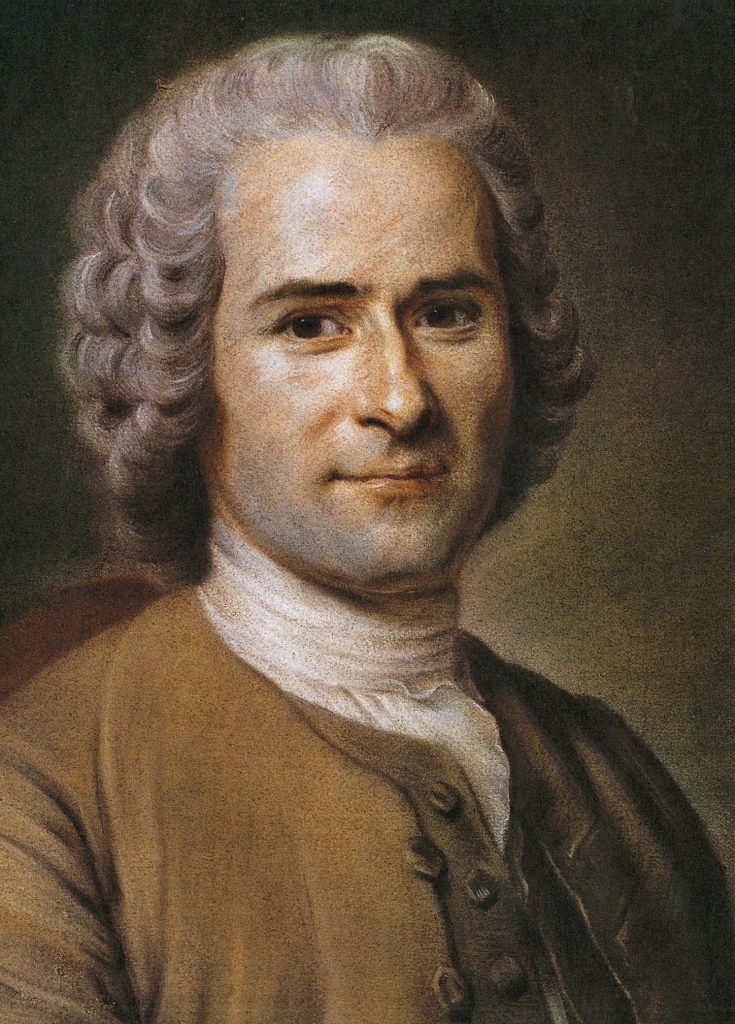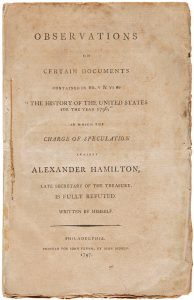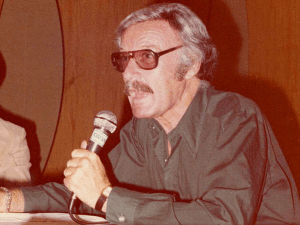“Man is born free and everywhere he is in chains.” -Jean-Jacques Rousseau1
Jean-Jacques Rousseau was born in the independent Calvinist city-state of Geneva on June 28, 1712. His mother, Suzanne Bernard, died exactly nine days after his birth, and as a result his father, Isaac Rousseau, was responsible for raising and educating Jean-Jacques, which he did until he was ten years old.2
When Rousseau was ten, his father fled Geneva to avoid imprisonment. Rousseau was left to live with his aunt and uncle. While living there, he acquired a passion for music from his aunt, but no one would have thought that he would ever be able to make a living from music; after all, he was the son of a watchmaker. By thirteen, Rousseau was sent to work as a notary, which did not last long, because again he was only seen as the son of a watchmaker.3 His only option was to work as a watchmaker, so he spent three years of his life there, which in his autobiography, Confessions, he describes as his “miserable years.”4 He spent the next twenty years of his life working in various menial jobs in order to make a living. But then in 1750, when he was thirty-seven years old, his life took a radical turn.
Rousseau wrote music for one of the operas that he composed, Le Devin du village (“The Village Soothsayer”).5 This opera was so successful that it caught the attention of King Louis XV. Many say that Rousseau could have lived an easy life thereafter, but his Calvinist blood would not let him live with that worldly glory.6 When Rousseau was thirty-seven, he had what he called a “terrible flash” (an illumination), that modern progress had corrupted people instead of improving them.7 So, he started writing his first important work, an essay called Discours sur les sciences et les arts, or Discourse on the Sciences and Arts, also known as his First Discourse; and he entered it in a contest at the Dijon Academy of Science in 1750, in which his essay won.8 He had already started writing articles for Diderot’s Encyclopedie, but his Discourse rejected the main idea of the Enlightenment, which was that technology and science would gradually make the world a better place for all of humanity. Rousseau argued that all advances of knowledge were harmful and would take men into further corruption.
Rousseau’s First Discourse surprised everyone; no one would have ever thought that a person who fled his hometown of Geneva with only the shirt on his back would have been able to challenge the intellectual establishment of mid-eighteenth-century Europe. But Rousseau knew that his First Discourse was going to create a storm, with his open hostility to prevailing opinions. He knew that there was not going to be many people that would agree with him, but he felt that it was necessary to challenge civilization itself. This was the start of his fame as one of the most influential but controversial writers in the Enlightenment period. Unlike the rest of the Enlightenment thinkers, Jean-Jacques Rousseau was different. For example, unlike Montesquieu and Voltaire, Rousseau had not received a formal education; instead, he was self-taught. But knowing that he was not as educated as the rest of the Enlightenment thinkers did not stop him from writing what he felt had to be written. He continued to write and to change the way everyone thought in the eighteenth century.

In 1755, Rousseau published his Second Discourse, or Discourse on the Origin and Foundations of Inequality among Men. This was a followup to his First Discourse, and it argued many new points, one of them being that the best political system is that of a small city-state in which the body of patriotic citizens is sovereign. In this discourse he also contradicted Thomas Hobbes, an English philosopher. Rousseau stated that Hobbes was wrong in supposing that a natural state of war ever existed among men. He also stated that Hobbes’ “war of all against all” was rather the product of historical development and not a theoretical state of nature among men. Rousseau raised the question of whether or not society itself is good for the human species. He then states that at earlier points in humanity’s natural development, humans were good, but as society developed, human nature became corrupted.9 Rousseau’s Second Discourse did not receive very positive criticism from his fellow Enlightenment thinkers, but there is evidence of letters that were exchanged back and forth between Voltaire and Rousseau, Philopis and Rousseau, and he responded to the observations made by Charles-George LeRoy. In those letters and responses Rousseau defended his point of view with his typical wit.
Another interesting and controversial work of Rousseau’s was The Social Contract (1762), in which he talks about how everyone is born free, but that freedom is taken away when one enters into civil society. He suggests that legitimate authority comes from a social contract agreed upon by all citizens for their mutual preservation. He calls the grouping of all citizens the “sovereign,” and suggests that it should be considered as a person, with a general will. This was by far one of the most controversial but open-minded works by Rousseau.10
Rousseau was one of the most incredible writers and thinkers of his time. He proposed a different way of thinking, and although he knew that his thinking was not going to be liked by a lot of people, he went on. He also helped invent modern anthropology, as well as an approach toward education that remains challenging and inspiring to this day.11 Jean-Jacques Rousseau passed away on July 2, 1778 in Ermenonville, France, but will always live in history.
- Jean-Jacque Rousseau, Social Contract & Discourses (New York: E. P. Dutton & Co., 1913), 2. ↵
- The Stanford Encyclopedia of Philosophy, November 2012, s.v. “Jean-Jacques Rousseau,” by Christopher Bertram. ↵
- Maurice Cranston, Jean-Jacques: The Early Life and Work of Jean-Jacques Rousseau (New York: W. W. Norton, 1983), 23. ↵
- Maurice Cranston, The Noble Savage: Jean-Jacques Rousseau, 1754–1762 (Chicago: University of Chicago Press, 1991.), 22. ↵
- Encyclopædia Britannica, June 2015, s.v. “Jean-Jacques Rousseau”, by Maurice Cranston. ↵
- Encyclopædia Britannica, June 2015, s.v. “Jean-Jacques Rousseau,” by Maurice Cranston. ↵
- Encyclopædia Britannica, June 2015, s.v. “Jean-Jacques Rousseau,” by Maurice Cranston. ↵
- Jean-Jacques Rousseau, The Confessions of Jean-Jacques Rousseau (New York: Random House, 1945), 45, 48, 57. ↵
- Jean-Jacques Rousseau, Discourse on the Origin of Inequality Polemics, and Political Economy, transl. Rodger D. Masters and Christopher Kelly (New York: St. Martin’s Press , 1964), 21, 27, 40, 42. ↵
- David Lay Williams, Rousseau’s Social Contract: An Introduction (New York: Cambridge University Press, 2014), 14, 17. ↵
- Leopold Damrosch, Jean-Jacques Rousseau (New York: Houghton Mifflin Company, 2005), 33. ↵



42 comments
Nataly Solis Chavez
Wow Z! I cant believe I waited so long to read your article! You did a great job. Honestly I could actually read between the lines and see your interest and passion for the topic making your final piece of work all the better. I’m so proud and whether you like it or not I’m recommending it to others! I cant wait to read future articles of yours!
Nahim Rancharan
Great Article! It was very interesting to learn more about Jean-Jacques Rousseau. I liked how this article highlighted the persevering side of Rousseau; a man from humble beginnings who decided to go against what was expected of him, to pursue his passion despite the criticisms that he was faced. Rousseau, with his achievements in music, philosophy, science and literatures was able to create a spark amongst minds, encouraging people to think and reflect instead of just going along with the flow of the Enlightenment Period. This article effectively highlights how important Rousseau’s contributions were and how they helped make him one of the greatest writers and thinkers of his time. Good Job!
Bailey Rider
Excellent article! It was really cool to learn about Rousseau’s beginnings. This is the first time that I had heard that he wrote music. It’s cool that his music is actually what brought him to the king and he chose philosophy instead of an easy life. It’s cool to think about how radical his ideas were at the time and the impact that they’ve had. Thank you for the article!
Briana Bustamante
This article was really well written. I enjoyed reading it from beginning to end. I did not know much about Rousseau but after reading your article I am well informed. I admire Rousseau as an individual because even though he knew that not a lot of people were going to agree with him, he still followed his heart and lived his life. At the end he did make a difference and still continues to make a difference in people’s lives. Great Job on this article!! -Briana Bustamante
Mariana Govea
Great article Zaraly! Very good research! As well as its very well organized and explained which made the read easy to follow and comprehend! I love learning about the thinkers during the Enlightenment Era, I was aware of who Rousseau was but not exactly of everything he had done and specially I did not know where he came from or any of his background, which after finishing your article I can say I know his background information! Great job on pointing out how he differed from other thinkers and how he was unique as well it helps us see and understand better how he stood out from the rest!
Natalia Zuniga
Great Article Z! He had quite an exciting life, it great that he went on his own path and did what he wanted. It is great that he was so known and did so much without haveing a formal education like other did. He certainly did impact a lot of people lives back then and still does with his ways.
Gabriela Medrano
Good read! i think this article has done justice for the hard working man Rousseau was. I had not known his background story which rubbed off as inspiring and motivational in some sense. For more that was against him he continued to work hard and stood headstrong on his beliefs. This article also goes to show that society, even today, recognize a person from the family they came from and this may never change. Good job, i enjoyed reading the article!
Teresa Valdez
It is hard to believe that Rousseau was so pressured by society to take on watchmaking. This gives perspective as to why he spoke out the way he did. It’s funny to think that Rousseau was so disliked and controversial among the other writers of the Enlightenment. I like the overviews the article gave on all of his works, it made his views understandable. Excellent article!
Sam Vandenbrink
Going from being the son of a watch maker to the composer of famous music! Mr. Rousseau is a very inspirational indivisual at the least. He had a dream and he went for it, causing him to be incredibly successful. In a way he achieved the American dream. Great Article Z, very strong and informative I had never heard of Mr. Rousseau before, and now I feel that I have a pretty good understanding of his life!
Roberto Tijerina
Great Job, Zee! This was an excellent article. I honestly have heard very little about Jean Jacques Rousseau, but this was a great way to just dabble into his world. With you including his troubled childhood, I was able to understand why and how he became so artistic. He truly was an phenomenal thinker and his works seemed to have greatly influenced the world.